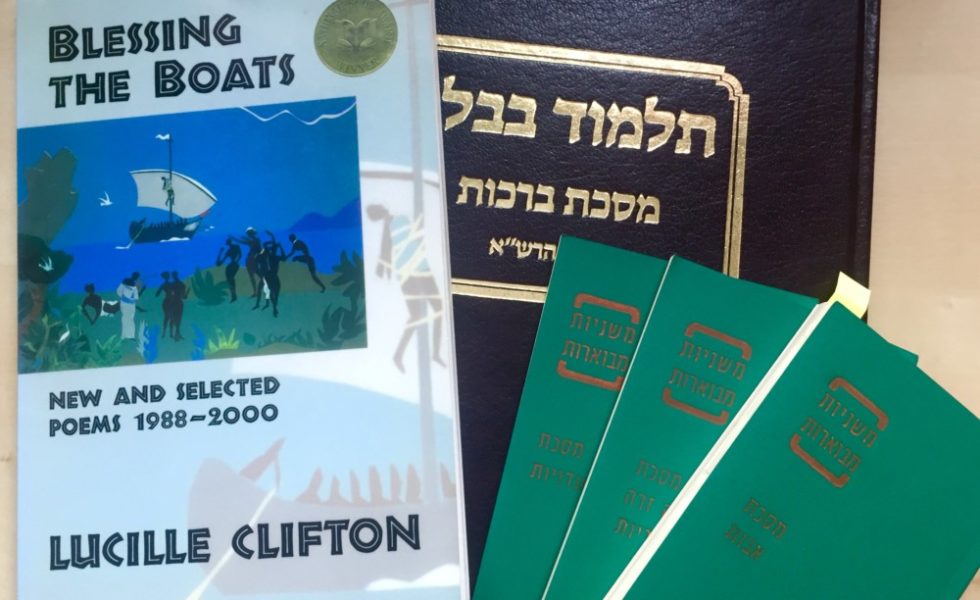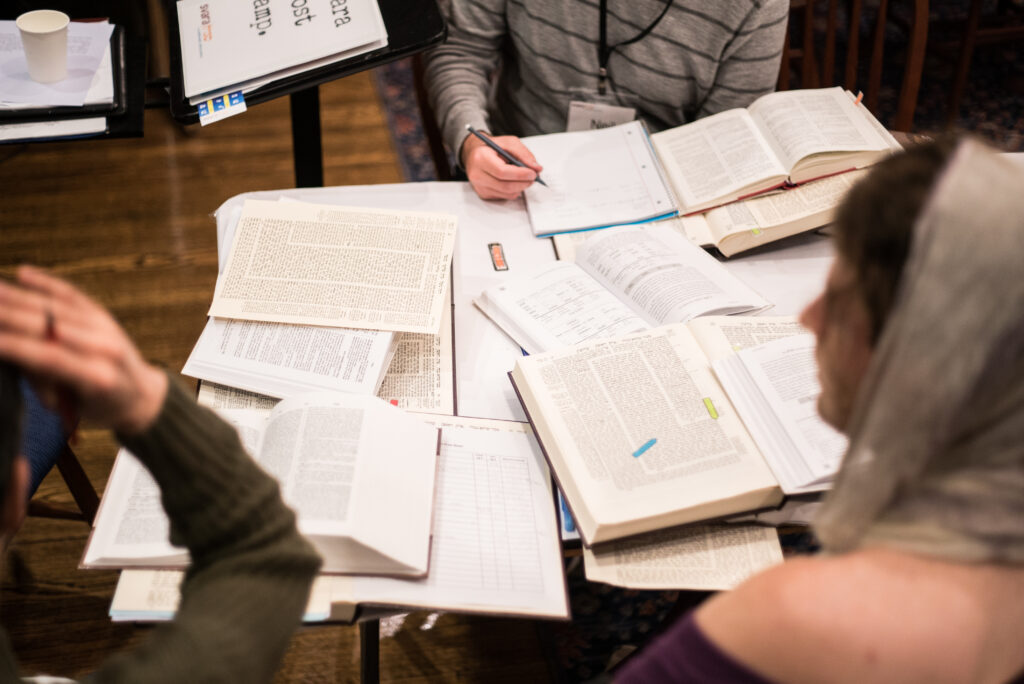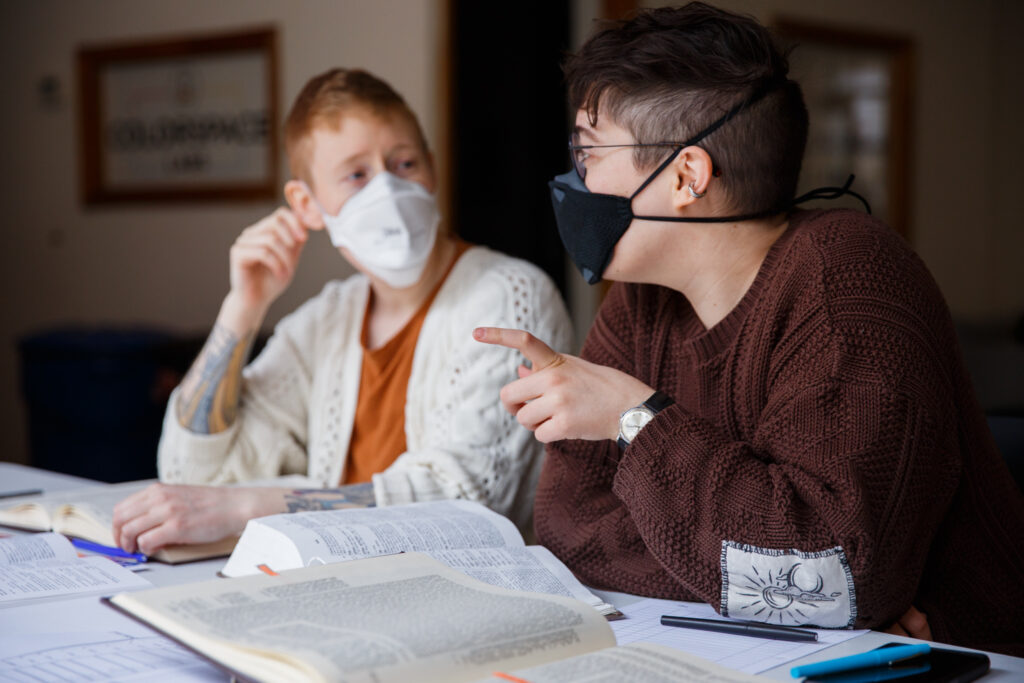A couple of weeks ago, I attended a poetry reading called Shelter in Poems, hosted by the Academy of American Poets. About 15,000 people were in attendance over an online streaming platform, as 25 writers and public figures each read aloud a favorite poem that has accompanied them throughout this time of global pandemic. I sat on the floor of my living room listening deeply, my body exhaling a long-held breath, my clenched hands starting to open. I’ve attended lots of online events over the past two months: concerts, webinars, dance parties, birthday hang outs… But sitting there, letting the rhythms of poetry wash over me, I felt healed and nourished in a unique way that almost no other virtual gathering space has allowed for.
with the animals dying around us
our lost feelings we are saying thank you
with the forests falling faster than the minutes
of our lives we are saying thank you
(from Thank You, by WS Merwin)
Lord,
when you send the rain,
think about it, please,
a little?
Do
not get carried away
by the sound of falling water,
the marvelous light
on the falling water.
(from Untitled, by James Baldwin)
may you kiss
the wind then turn from it
certain that it will
love your back
(from Blessing the Boats, by Lucille Clifton)
Poetry is spacious– allowing the breath to be part of the reading or listening experience. It is non-linear and at times enigmatic– in poetry, things don’t have to tie together in obvious or rational ways, things don’t have to “make sense.” It is concise– a poem is about the length of text my attention span can handle in times of crisis. It is sparse– I am invited to slow down and engage attentively, to sink into the depth of each word, one word at a time. For all of these reasons, poetry steadies and soothes me in times of fear and anxiety, and has been an important part of my own personal resilience practice in these months.
I say that almost no other virtual gathering space has nourished me in this particular way. SVARA’s Drop-In Mishna Collective is another space akin to this reading, and in our daily half-hour learning space, I have many times felt a similar anchoring and presence as the one that comes over me through poetry.
וֶהֱוֵי מִתְחַמֵּם כְּנֶגֶד אוּרָן שֶׁל חֲכָמִים, וֶהֱוֵי זָהִיר בְּגַחַלְתָּן שֶׁלֹּא תִכָּוֶה, שֶׁנְּשִׁיכָתָן נְשִׁיכַת שׁוּעָל
Warm yourself before the fire of the wise, but beware of being singed by
their glowing coals, for their bite is the bite of a fox, and their
sting is the sting of a scorpion. (Avot 2:10)
מֵאַיִן בָּאתָ, מִטִּפָּה סְרוּחָה, וּלְאָן אַתָּה הוֹלֵךְ, לִמְקוֹם עָפָר רִמָּה וְתוֹלֵעָה
From where do you come? From a flowing drop. Where are you going?
To a place of dust, worm and maggot. (Avot 3:1)
גְּדוֹלָה תוֹרָה שֶׁהִיא נוֹתֶנֶת חַיִּים לְעֹשֶׂיהָ בָּעוֹלָם הַזֶּה וּבָעוֹלָם הַבָּא, שֶׁנֶּאֱמַר… (שם ג) רִפְאוּת תְּהִי לְשָׁרֶךָ וְשִׁקּוּי לְעַצְמוֹתֶיךָ
Great is Torah for it gives life to those that practice it, in this world, and in
the world to come, As it is said… “It will be a tonic for your navel and
marrow for your bones.” (Avot 6:7)
The Mishnah too is spacious, concise, and sparse. As literature, Mishnah is distinctly sparing when compared to other Rabbinic writings and to the wider Jewish textual canon. And whereas the vast majority of Mishnaic material is halakhic case law, Masechet Avot is uniquely composed of short ethical and moral statements from the early rabbis, articulating their beliefs about what constitutes a meaningful life.
To me, the mishnayot of Pirkei Avot read like poems– they are lyrical and laden with compelling metaphors. They weave verses of Torah into condensed and playful interpretations. They are often mysterious, and require us as learners to think in flexible and new ways, to approach them curiously, in a small group or with a chevruta, to unlock their meanings. They are meditations and reflections on some of life’s biggest ideas, boiled down to the most compact and essential ways of saying them. They almost hum on the page, each sentence dense with possibility.
When I come daily to our Mishnah Collective, the task before me is small but deep. I am expected to interact with a handful of words at a time, and to think like a reader of poetry. For example, this image rises off of the page: “וּמַלְבַּשְׁתּוֹ עֲנָוָה וְיִרְאָה” “Torah clothes a person in humility and awe” (Avot 6:1). What does it mean for a person to be clothed in humility and awe as though they were garments? What does that look like, feel like? Why did the rabbis select the verb “to clothe, to cause to be covered or dressed in,” in order to convey this idea? Have I ever felt Torah learning cloak me in a feeling, a quality, an idea?
Or this: “כַּךְ הִיא דַּרְכָּהּ שֶׁל תּוֹרָה, פַּת בְּמֶלַח תֹּאכַל” “This is the Way of Torah: Eat bread with salt” (Avot 6:4). What do bread and salt have to do with Torah? What do these images evoke in me when I read them? I’m surprised to encounter bread and salt amidst a passage about Torah learning. What does the element of surprise add to my experience, how does it enliven and enhance my understanding of Torah, giving it a burst of life like the taste of salt on a slice of bread?
Poet George Oppen writes, “One must not come to feel that he has a thousand threads in his hands, / He must somehow see the one thing; / This is the level of art.” When I study Mishnah with intention and focus, I am able to see one thing at a time. I’m not expected to hold a thousand threads in my hands, to develop an analysis of the changing economy or the failing healthcare system, to address the barrage of bad news that inundates my inbox all at once. I am able to slow down, plug in, and breathe into the simplicity and specificity of the text. This tends to have a ripple effect on the rest of my day. On days laden with both monotony and overwhelm, the practice of tending to one task at a time, or one conversation at a time, makes it possible for me to care for others, to get my work done, to feel, sometimes, ok.
At SVARA we often talk about scholar Moshe Halbertal’s idea that the Talmud is a “formative” text rather than a “normative” text, meaning that the literary form of the Talmud, and the modes with which we study it, are intended to shape us into a certain kind of person. Rather than simply convey rules and give over information, the Talmud, so full of unanswered questions and discursive exchanges, cultivates in us a capacity for paradox and multiple truths. This capacity, carved through our minds and spirits when we study, can equip us to navigate a changing world with compassion and creativity. In this way, it is a “formative” text, a text that transforms us from the inside out.
The Mishnah, on the other hand, the rabbinic rulebook of Torah 2.0, is often characterized as a “normative” text, one that delivers a clear set of instructions, without much back-and-forth or complexity. But studying daily in our Mishnah Collective has shown me that Masechet Avot is also a formative text, whose genre, shape, and content is intended to make us into a certain kind of person. The person I have been able to practice being over the past two months is someone who can listen deeply, who is less afraid of the unknown, who remembers to return to an open moment of breath, and an open page of possibility. When I study Masechet Avot, as when I read poetry, I don’t have to tie everything together, I don’t have to take it all on at once. I become, as our text describes, one who listens carefully, speaks deliberately, discerns with my heart, and reflects with my heart (Avot 6:6). And these days, that makes all the difference.







